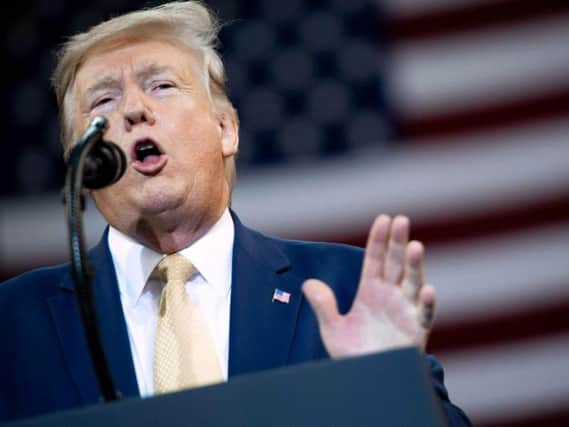What's in Labour's dossier on UK-US trade - and what does it mean for Scotland?


The party claims the documents show that NHS contracts would be on the table in post-Brexit trade talks, with the health service opened up to big US pharmaceutical companies and contractors.
The UK Government says the six rounds of meetings took place in 2017 and 2018 - before Boris Johnson took office - and continues to insist that the NHS will not be ‘privatised’ in any way.
Advertisement
Hide AdAdvertisement
Hide AdTrade and its effect on the NHS has already been a key issue in this election. Scotland’s medicines regulator has an important role in setting the price of NHS medicines. But for Scotland, the documents also hold interest in another area - the environment and food standards, where key responsibilities are devolved.
US trade negotiators have been open in signalling that they would want a post-Brexit UK to diverge from EU regulations and ease restrictions on imported food products.
According to a briefing from Labour, the documents reveal the extent to which US officials have pressed this point.
US negotiators “repeatedly emphasised their view that the UK should seek regulatory autonomy following EU exit and allow [the UK] to evaluate methods/products independently”, the briefing states.
Much has been made of the risk from American meat that has undergone ‘pathogen reduction treatment’ - the infamous chlorine-washed chicken. In talks, the US trade team “wondered if there would be an interest in bringing [pathogen reduction treatment] back post EU-exit”. The American team offered to share “public lines on chlorine-washing chicken” for the UK to use in the media, and suggested a transatlantic “regulator to regulator dialogue” on the issue.
The notes also claim that restrictions around “agricultural chemicals give the US the most ‘angst’”.
Other aspects of the UK’s approach to food safety are seen as an obstacle to trade in Washington. According to Labour, “the US view the introduction of warning labels as harmful rather than as a step to public health”.
And with climate change a major political issue, both at election time and increasingly in international trade talks, the documents claim that Washington is unwilling to have any environmental conditions placed on UK-US trade.
Advertisement
Hide AdAdvertisement
Hide AdUK officials “inquired about the possibility of including reference to climate change in a future UK-US trade agreement given that the UK has a strong historical stance on climate change and push strongly for the Paris Agreement. [The] UK also highlighted the pressure for this that would come from civil society and NGOs.”
The US “responded emphatically that climate change is the most political (sensitive) question for the US, saying it is a ‘lightning rod issue’, mentioning that as of 2015, USTR are bound by Congress not to include mention of greenhouse gas emission reductions in trade agreements… this ban would not be lifted any time soon.”
Unveiling the SNP manifesto this morning, Nicola Sturgeon has repeated her insistence that Scotland should have the right to approve or reject any post-Brexit trade deals, even though international trade is a reserved matter.
And David Martin, the former long-serving MEP who was one of the European Parliament’s leading trade experts, has previously told the Scotsman that devolved administrations could snarl trade talks where they cover devolved areas. This row will rumble on for years to come.